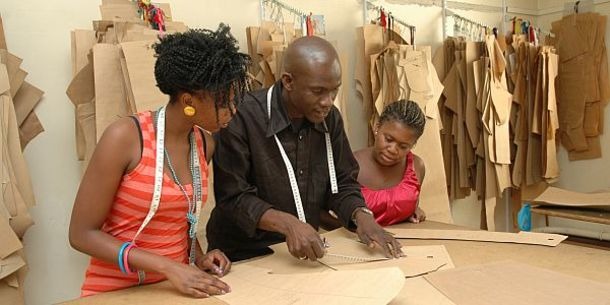
‘How to survive crisis’ online kit available free for African SMEs
The number of cases may still be small across the continent but the economic impact from Covid-19 is bound to have a lasting effect on many businesses.
The informal sector, which represents up to 50% of the economy in many countries, has already taken a brutal hit as will the many SMEs that already operate within a challenging environment. Their access to finance is limited and the general schemes that have been offered in more developed countries – wage support, loan guarantees – to help companies ride the storm are unavailable in countries that are already constrained in their ability to offer fiscal stimuli.
IIA’s ‘COVID-19 SME Survival Toolkit’ includes practical guides, solutions and recommendations to help African SMEs get through the many challenges the pandemic represents, as well as a series of webinars.
The importance of supporting SMEs
William Pollen, CEO of IIA, emphasises the importance of supporting SMEs:
“Because the vast majority of businesses in Sub-Saharan Africa are SMEs, they also provide nearly all employment opportunities, so ensuring their survival is critical to longer term economic growth prospects. What we’re aiming to achieve through this programme is not only to enhance SMEs’ chances of surviving this crisis, but also to help them emerge stronger and more resilient.
“Whilst survival is the new theme of 2020, SMEs are in danger of being forgotten about. We wanted to ensure they don’t get left behind by arming them with practical support, built over years of experience, that can be implemented now, focusing on business-critical issues like cash flow, cost reduction, procurement and HR.”
Helping SMEs grow and become more competitive
Established in 2012, IIA operates locally in five countries across the continent – Ghana, Kenya, Senegal, Zambia and Mauritania – acting as a catalyst for SME growth and competitiveness by providing training, improving access to finance and mitigating supply chain risks. Most people will know the organisation as the shirt sponsor of Sunderland Football Club when they were in the Premiership in 2012.
IIA works with an extensive network of partner organisations, including consultancy Ernst & Young (EY), the IFC and others. Alongside these partners, they have developed courses such as The 100-Day COVID-19 Business Recovery Plan and also courses targeting specific groups such as women-led SMEs.
One partner is Kenya’s largest bank in terms of customers, Equity Bank. The Group’s Managing Director James Mwangi also warns of the impact this health crisis could have on the survival of SMEs:
“In Africa where economies are predominantly SME led, the social economic impact of Covid-19 will be multi-dimensional, impacting both the national economy and the individual SME businesses, many of which are cashflow based. As a bank we recognise the negative impact this will have on the survival and growth of the SME sector and by extension on every household. As an SME-led bank, we are working closely with our SMEs to support them and this initiative by Invest in Africa.”
Part of IIA’s programme is to highlight to SMEs what support is already available and how to access funding.

